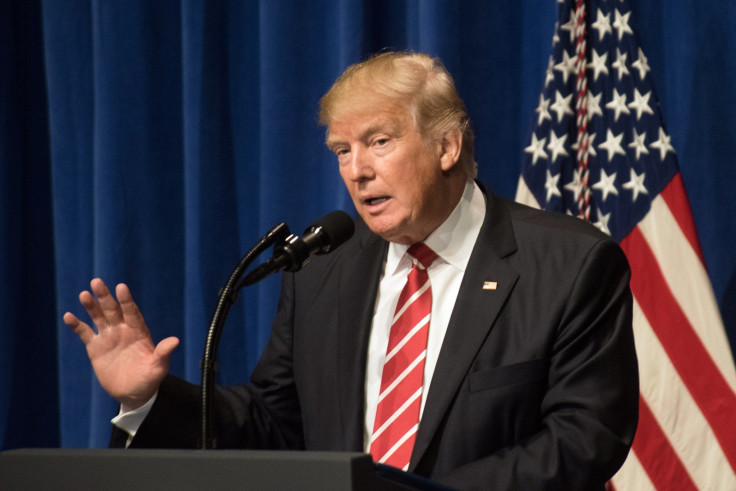Can Trump Revoke A Network's Broadcasting License?

President Donald Trump suggested Wednesday that NBC and other networks should have their broadcasting licenses cancelled as punishment for publishing a number of stories the president has derided for supposedly being fake news.
In a series of tweets fired off from his verified personal account, President Trump called NBC News “fake” and said a recently reported story from the network was “pure fiction, made up to demean,” while equating the network to CNN, one of his preferred targets to lash out at.
“With all of the Fake News coming out of NBC and the Networks, at what point is it appropriate to challenge their License? Bad for country!” the president said.
Trump recently turned his attention to NBC after a series of reports from the network surrounding the relationship between the president and Secretary of State Rex Tillerson, including a report last week that claimed Tillerson called Trump a “moron” after a meeting. NBC expanded on that reporting this week, revealing that Trump said during that meeting that he wanted a tenfold increase in the nuclear arsenal.
In response to the latest rounds of reports that the president disagrees with, he has threatened to challenge or potentially revoke the broadcasting license of NBC and other organizations that publish what Trump deems to be fake news. Unfortunately for the president, it seems the threat itself is fake.
According to a report called “The Public and Broadcasting” published by the U.S. Federal Communications Commission, the regulatory body that grants broadcasting licenses, there is little to nothing to suggest the government could revoke the right to broadcast from any specific organization.
The report explicitly states the FCC only licenses individual broadcast stations. “We do not license TV or radio networks (such as CBS, NBC, ABC or Fox),” the report said. Local stations often partner with networks to create affiliate stations but those stations are not necessarily owned by the network.
The FCC also notes in the report that it primarily grants broadcast licenses for the purposes of designating portions of the broadcast spectrum in order to make sure there is no interference among stations.
Typically, the FCC does not get into the business of policing content on the airwaves. The report from the commission states, “broadcasters—not the FCC or any other government agency—are responsible for selecting the material that they air. By operation of the First Amendment to the U.S. Constitution, and because the Communications Act expressly prohibits the Commission from censoring broadcast matter, our role in overseeing program content is very limited.”
The U.S. Communications Act also goes out of its way in section 326 to state, “Nothing in this Act shall be understood or construed to give the Commission the power of censorship over the radio communications or signals transmitted by any radio station, and no regulation or condition shall be promulgated or fixed by the Commission which shall interfere with the right of free speech by means of radio communication.”
In compliance with that law, the FCC said in its report on broadcasting that it doesn’t “substitute our judgment for that of the licensee, nor do we advise stations on artistic standards, format, grammar, or the quality of their programming.”
The FCC does have specific standards for hoaxes and false information broadcast over the airwaves. According to the commission, broadcasting a fake story violates the rules if the station knew the information was false, the broadcast of the information directly causes substantial public harm and it was foreseeable that broadcasting the false information would cause such harm.
Those standards apply to individual stations that the FCC has licensed, but does not apply to a network like NBC. It is also worth noting that while the president may object to certain stories, there is no evidence to suggest those stories are in fact fake or would violate any of the FCC’s standards.
It is possible for an individual station to lose its broadcast license for any number of reasons—including failing to serve the public interest. Members of the public can also submit a protest against a station’s license renewal application by filing a petition to deny the application.
In the wake of Trump’s suggestion that NBC lose its license, it is possible that supporters of his flock to file petitions against the licenses of NBC stations. But again, such a process would apply to an individual station, not a network.
The FCC did not immediately respond to request for comment on President Trump’s statement.
© Copyright IBTimes 2024. All rights reserved.




















